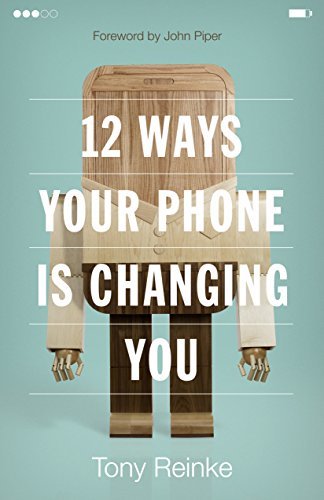
Digital Minimalism: Choosing a Focused Life in a Noisy World
Book Description
In a world drowning in digital noise, what if the path to real fulfillment lies in radical simplicity? "Digital Minimalism" by Cal Newport unveils a bold strategy to reclaim focus and clarity amidst the chaos of constant notifications and endless scrolling. With gripping insights and actionable steps, it invites readers to strip away the unnecessary distractions and cultivate a life of intention and purpose. As technology evolves, the battle for attention intensifies—will you choose to join the fray or escape the frenzy? Discover how the art of digital minimalism can ignite a profound transformation in the way you live and connect. What could you achieve when you embrace the power of less?
Quick Book Summary
"Digital Minimalism" by Cal Newport presents a timely guide to reclaiming our attention and well-being in an age dominated by digital distractions. Newport argues that the constant barrage of notifications, social media updates, and digital obligations is eroding our ability to concentrate, connect meaningfully, and live intentional lives. Drawing on historical philosophy and contemporary examples, he introduces the concept of digital minimalism—a philosophy of using technology with purpose and clarity, rather than impulse and passivity. Through practical steps such as a 30-day digital declutter and the cultivation of high-quality leisure, Newport demonstrates how to strip away the digital noise and focus on what truly matters. The book empowers readers to realign technology use with their values, seeking depth and intention in a world of superficial engagement.
Summary of Key Ideas
Table of Contents
The Philosophy of Digital Minimalism
Cal Newport introduces digital minimalism as a principled approach to managing technology. Unlike simple digital detoxes, digital minimalism is about intentionally shaping technology use to serve deeply held values, rather than letting convenience or social pressure dictate online behaviors. Newport explores philosophical foundations from historical figures who valued solitude, deep work, and reflective practices, asserting that these insights are strikingly relevant in today's hyper-connected world.
Intentional Technology Usage
A major theme is the need for intentional technology usage. Newport critiques the common, mindless adoption of new apps and platforms, emphasizing that every digital tool should be chosen for a specific, valuable purpose. He advocates periodically reassessing the technologies we use and ensuring each serves our most meaningful activities. Newport encourages readers to be highly selective, using digital tools to amplify life, not dominate it. By eliminating unnecessary digital clutter, individuals can regain a sense of control and clarity.
The Digital Declutter Process
Newport prescribes a 30-day “digital declutter” to reset habits and provide a fresh perspective on technology’s role. During this process, participants remove all non-essential digital tools and carefully reintroduce only what brings genuine value. The declutter helps break compulsive behaviors and reveals which technologies enhance life rather than detract from it. Newport shares real-life stories of people who found more time, energy, and focus after dramatically reducing their digital consumption.
Rediscovering High-Quality Leisure
Digital minimalism goes beyond abstaining from excess and actively encourages the pursuit of high-quality leisure. Newport observes that many turn to screens for passive entertainment, which rarely brings fulfillment or skill-building. Instead, he suggests rediscovering analog activities—like crafting, reading, outdoor pursuits, or community engagement—that foster more satisfaction and growth than scrolling feeds or streaming videos.
Fostering Deeper Social Connections
A final key idea is nurturing deeper social connections in an era of superficial digital communication. Newport differentiates between high-value interactions—like face-to-face conversations and meaningful phone calls—and low quality, fragmented messaging. He argues that relationships, like all important endeavors, flourish when given deliberate attention and time, urging readers to place real-world connection at the center of their social lives—thus reclaiming both attention and lasting happiness.
Download This Summary
Get a free PDF of this summary instantly — no email required.





